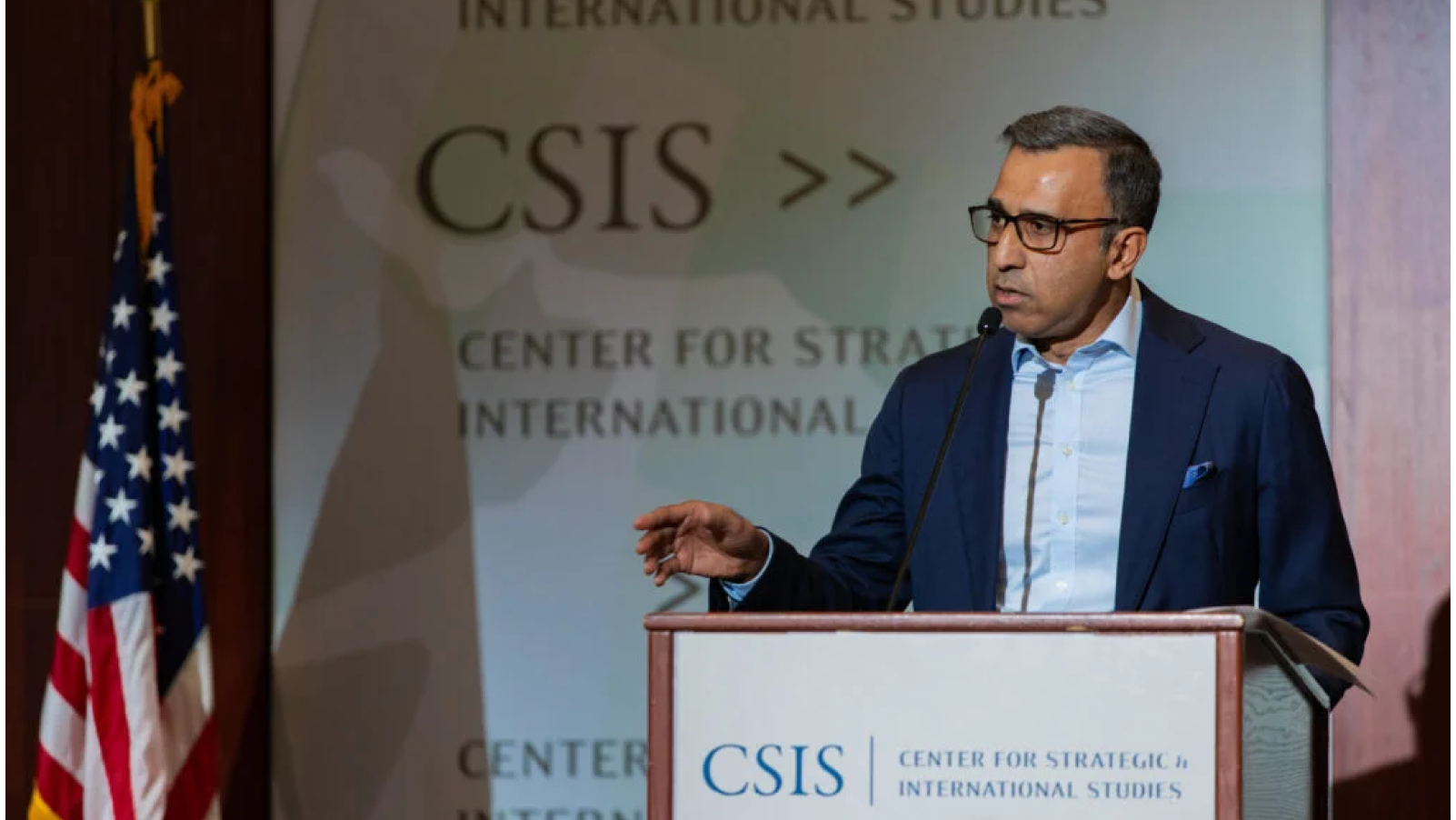August 4th, 2025
3 min read
Navrina Singh is Founder and CEO of Credo AI, an AI governance platform that empowers organizations to deliver and embed AI responsibly by proactively measuring, monitoring and managing risks. Before founding Credo AI, Singh spent nearly two decades building products in mobile, SaaS and AI at companies like Microsoft and Qualcomm.
She is a member of the U.S. Department of Commerce National Artificial Intelligence Advisory Committee (NAIAC), which advises the President and the National AI Initiative Office. She is also an AI expert at OECD, advisor to the UN AI Advisory board, a young global leader with the World Economic Forum, and served as an executive board member of Mozilla Foundation and Mozilla AI, supporting its trustworthy AI charter.
Singh spoke to us about governance, and the critical role it plays in building trust in AI.

Bridges and Barriers
Companies are under increasing pressure to manage the ethical implications and risks that come with AI adoption. Singh’s company, Credo AI, helps enterprises assess AI risks, align AI systems with their organizational policies, and prepare for the future of evolving AI regulations.
And she notes that at the heart of the conversation around AI adoption lies a fundamental distinction: governance is not the same as compliance or regulation.
Governance, according to Singh, is about internal accountability and it includes several key elements:
-
Understanding and mitigating AI risks
This includes addressing issues like fairness, transparency, and reducing AI “hallucinations” where AI makes inaccurate or nonsensical decisions.
-
Aligning AI with company policies
Every organization has its own unique risk tolerance. AI governance should reflect these diverse values and priorities.
-
Future-proofing AI systems
As global regulations evolve (e.g., NIST, ISO), AI systems must be adaptable to meet future standards.
On the other hand, compliance is external, focused on meeting regulatory requirements. It’s often reactive, responding to governmental and industry standards, while governance is proactive, ensuring that AI is used in a responsible and ethical manner across an organization.
“AI governance needs to be seamless and embedded in everyday operations. It should feel like a natural extension of the business,” says Singh. “That’s why we designed our platform to work across AI models from different providers, including OpenAI, Anthropic, and open-source models. Whether it’s for marketing, fraud detection, or customer support, we ensure that companies can manage AI responsibly, no matter the use case.”
Credo AI’s platform integrates AI governance with business infrastructure, providing both SaaS and on-premise solutions. For enterprises, this means they can define governance goals, track risks, and maintain continuous oversight over their AI systems, while also ensuring they remain aligned with internal policies.
AI governance is not just about compliance – it’s about trust. Enterprises that prioritize AI governance don’t slow down innovation; they accelerate it by mitigating risks, ensuring alignment with corporate objectives, and creating a competitive advantage in the AI-driven world.
AI in Society
Regulations surrounding AI are emerging rapidly on national and international fronts. Staying on top of them can be a daunting task. Companies often struggle with navigating these complex regulatory landscapes, while also maintaining the trust of their customers and stakeholders.
Singh explains, “AI trust is at the forefront of our customers’ minds. We see large enterprises like Mastercard, Cisco, Booz Allen, McKinsey and Regeneron turning to Credo AI because they prioritize AI trust and compliance.”
Credo AI developed a maturity model that evaluates a company’s AI capabilities and infrastructure, organizational governance structures, and internal policies. The model helps businesses understand where they stand in their AI journey and identify areas for improvement.
“Mature enterprises like Cisco and PepsiCo use the platform as a central AI governance system,” explains Singh. “On the other hand, less mature companies often rely on our advisory services to build the foundational AI governance processes before implementing our software.” This tailored approach ensures that businesses of all sizes and maturities can benefit from AI governance that aligns with their needs and goals.
Meanwhile, Credo AI’s collaborations with major technology players like Microsoft and Databricks enable seamless integration of AI governance into existing business infrastructures.
Singh believes AI governance should not be seen as a roadblock, but as a competitive advantage. “AI is here to stay,” she says. “Companies that prioritize governance and compliance will be better equipped to manage AI risks, meet future regulatory demands, and continue to grow in a responsible and sustainable manner.”




